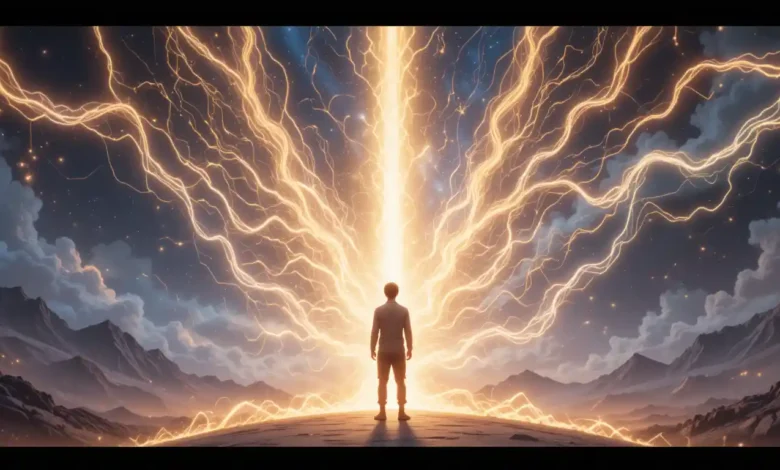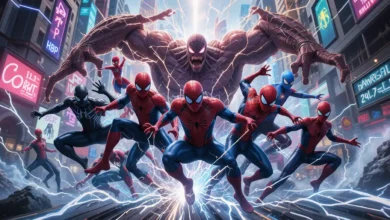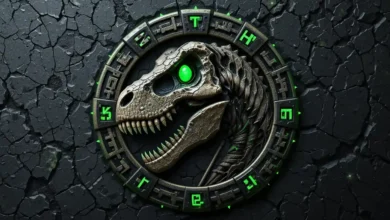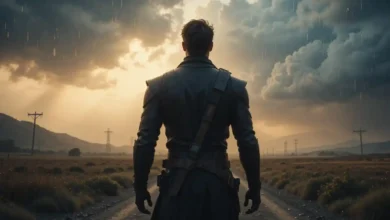What’s a Canon Event Mean?

In storytelling, certain events hold immense significance, shaping the narrative and characters’ arcs. These pivotal moments, known as canon events, define the core essence of a story, influencing its direction and outcome. Understanding canon events is crucial for appreciating the depth and complexity of narratives across various media, from literature to film, television, and beyond.
In this comprehensive guide, we will explore the concept of canon events, their importance in storytelling, and how they impact the overall narrative structure. We’ll delve into examples from popular culture, discuss the differences between canon and non-canon events, and examine how these events contribute to character development and plot progression. By the end of this post, you’ll have a thorough understanding of what canon events mean and why they are vital to storytelling.
What is a Canon Event?
A canon event refers to a significant occurrence within a story that is considered an official part of the narrative. These events are crucial to the plot and are often pivotal moments that define the storyline and characters’ development. Canon events are established by the original creators and are recognized as integral to the story’s continuity and integrity.
In literature, film, television, and other media, canon events serve as the backbone of the narrative. They are the milestones that guide the story forward, providing structure and coherence. For example, in J.K. Rowling’s Harry Potter series, the Battle of Hogwarts is a canon event that marks a decisive turning point in the story.
Canon events can vary in scale and impact, ranging from character introductions and significant plot twists to climactic battles and resolutions. They are meticulously crafted by the creators to ensure they align with the overall vision and themes of the story.
The Importance of Canon Events in Storytelling
Canon events play a vital role in storytelling for several reasons:
- 1. Structural Integrity
Canon events provide a framework for the narrative, ensuring a cohesive and structured storyline. They help maintain the story’s continuity, preventing plot holes and inconsistencies. By establishing key events as canon, creators can build a solid foundation for the story, allowing for a more engaging and immersive experience for the audience.
- 2. Character Development
Canon events often serve as catalysts for character development. These events can challenge characters, forcing them to confront their fears, make difficult decisions, and grow as individuals. For example, in George R.R. Martin’s A Song of Ice and Fire series, the death of Eddard Stark is a canon event that significantly impacts the development of his children and sets the stage for the ensuing conflicts.
- 3. Emotional Impact
Canon events are designed to evoke strong emotions in the audience. They create moments of tension, excitement, and catharsis, making the story more memorable and impactful. These events often resonate with fans, becoming iconic moments that are discussed and celebrated within the fandom.
- 4. Thematic Consistency
Canon events help reinforce the themes and messages of the story. By carefully crafting these events, creators can emphasize key themes and explore complex ideas. For instance, in J.R.R. Tolkien’s The Lord of the Rings, the destruction of the One Ring is a canon event that underscores the themes of sacrifice, friendship, and the struggle between good and evil.
- 5. World-Building
Canon events contribute to the world-building of a story. They add depth and richness to the fictional universe, providing context and history. These events help establish the rules and lore of the world, making it more immersive and believable for the audience.
Examples of Canon Events in Popular Culture
Canon events are prevalent in various forms of media, from literature to film and television. Here are some notable examples:
- 1. The Death of Mufasa in The Lion King
In Disney’s The Lion King, the death of Mufasa is a pivotal canon event that shapes the entire narrative. This tragic moment marks a turning point for Simba, the protagonist, and sets him on a journey of self-discovery and redemption. Mufasa’s death also serves as a catalyst for the conflict between Simba and Scar, driving the plot forward.
- The Red Wedding in Game of Thrones
The Red Wedding is one of the most shocking and memorable canon events in the Game of Thrones series. This brutal massacre, orchestrated by the Freys and the Boltons, results in the deaths of several major characters, including Robb Stark and his mother, Catelyn Stark. The Red Wedding has a profound impact on the story, leading to significant shifts in power dynamics and alliances.
- The Snap in Avengers: Infinity War
In the Marvel Cinematic Universe, the Snap is a canon event that dramatically alters the course of the story. Thanos’ use of the Infinity Gauntlet to erase half of all life in the universe creates a monumental challenge for the surviving heroes. The Snap sets the stage for the events of Avengers: Endgame, driving the characters to find a way to reverse the devastation and defeat Thanos.
- Harry’s Encounter with Voldemort in Harry Potter and the Philosopher’s Stone
Harry Potter’s first encounter with Voldemort in Harry Potter and the Philosopher’s Stone is a significant canon event that establishes the central conflict of the series. This encounter not only introduces the primary antagonist but also reveals Harry’s unique connection to Voldemort, which becomes a crucial element of the overarching narrative.
- Frodo’s Journey to Mount Doom in The Lord of the Rings
Frodo Baggins’ journey to Mount Doom is a central canon event in J.R.R. Tolkien’s The Lord of the Rings. This perilous quest to destroy the One Ring is the linchpin of the story, driving the plot and character arcs. Frodo’s journey is fraught with challenges and sacrifices, culminating in the ultimate victory over Sauron.
Canon vs. Non-Canon Events
Understanding the distinction between canon and non-canon events is essential for comprehending the overall narrative structure of a story.
Canon Events
Canon events are officially recognized as part of the story’s continuity. These events are created or endorsed by the original creators and are integral to the narrative. They provide the foundation for the story’s plot, themes, and character development.
Non-Canon Events
Non-canon events, on the other hand, are not part of the official storyline. These events may occur in spin-offs, fan fiction, alternate universes, or other unofficial works. While they can be entertaining and offer new perspectives, they do not impact the main narrative or its continuity.
Non-canon events can sometimes create confusion among fans, especially when they contradict established canon. However, they also offer opportunities for creative exploration and can provide additional content for dedicated fans to enjoy.
Canon vs. Non-Canon in Star Wars
The Star Wars franchise provides a clear example of the distinction between canon and non-canon events. The original films, as well as the official sequels and prequels, are considered canon. However, many of the expanded universe novels, comics, and games created before Disney’s acquisition of Lucasfilm were reclassified as non-canon and labeled “Legends.” This decision allowed for a streamlined and cohesive narrative while still acknowledging the value of the expanded universe content.
How Canon Events Shape Character Development
Canon events are instrumental in shaping the development of characters within a story. These events challenge characters, forcing them to confront their fears, make difficult choices, and grow as individuals. Here are a few ways canon events influence character development:
- Defining Moments
Canon events often serve as defining moments for characters, revealing their true nature and motivations. For example, in The Hunger Games, Katniss Everdeen’s decision to volunteer in place of her sister, Prim, is a canon event that highlights her bravery and selflessness. This moment sets the tone for her character arc and establishes her as a hero.
- Character Growth
Canon events can catalyze significant character growth. In the Harry Potter series, the death of Sirius Black is a canon event that profoundly impacts Harry. This loss deepens his resolve to fight against Voldemort and shapes his understanding of sacrifice and loss. Harry’s growth as a character is closely tied to the canon events he experiences.
- Moral and Ethical Dilemmas
Canon events often present characters with moral and ethical dilemmas, forcing them to make difficult choices. In Breaking Bad, Walter White’s decision to cook methamphetamine is a canon event that drives his transformation from a mild-mannered chemistry teacher to a ruthless drug lord. This choice sets off a chain of events that explores the complexities of morality and the consequences of one’s actions.
- Interpersonal Relationships
Canon events can also shape interpersonal relationships between characters. In the television series Friends, Ross and Rachel’s on-again, off-again relationship is punctuated by canon events that influence their dynamic. Moments such as Ross saying the wrong name at his wedding or Rachel giving birth to their child are pivotal in their relationship’s evolution.
- Hero’s Journey
Many stories follow the hero’s journey archetype, where the protagonist undergoes a transformative journey marked by canon events. In The Lord of the Rings, Frodo’s journey to destroy the One Ring is filled with canon events that test his courage, resilience, and morality. Each event contributes to his development as a hero and shapes his ultimate destiny.
The Role of Canon Events in Plot Progression
Canon events are essential for driving the plot forward and maintaining the story’s momentum. These events create tension, introduce conflicts, and set the stage for resolutions. Here are a few ways canon events contribute to plot progression:
- Introducing Conflict
Canon events often introduce the central conflict of the story. In The Matrix, Neo’s discovery of the truth about the Matrix is a canon event that propels the plot forward. This revelation sets the stage for the battle between humans and machines, driving the narrative and shaping the characters’ actions.
- Raising Stakes
Canon events can raise the stakes, increasing the tension and urgency of the story. In the Harry Potter series, the Triwizard Tournament is a canon event that raises the stakes for Harry. The dangerous tasks and the presence of Voldemort heighten the tension and create a sense of impending danger.
- Creating Turning Points
Canon events often serve as turning points in the narrative, shifting the direction of the story. In Star Wars: The Empire Strikes Back, the revelation that Darth Vader is Luke Skywalker’s father is a canon event that changes the course of the story. This moment redefines Luke’s mission and his understanding of his own identity.
- Setting Up Resolutions
Canon events can set up the resolution of the story by bringing characters and conflicts to a climax. In The Hunger Games, the final confrontation between Katniss and President Snow is a canon event that resolves the central conflict of the series. This climactic event brings closure to the story and provides a satisfying conclusion for the audience.
- Foreshadowing Future Events
Canon events can also foreshadow future events, creating anticipation and intrigue. In the Marvel Cinematic Universe, the post-credit scenes often serve as canon events that hint at future plot developments. These scenes build excitement and keep the audience engaged with the overarching narrative.
The Impact of Canon Events on Fans and Fandoms
Canon events have a profound impact on fans and fandoms, influencing their engagement with the story and their interactions within the community. Here are a few ways canon events affect fans and fandoms:
- Emotional Investment
Canon events evoke strong emotions in fans, creating a deep emotional investment in the story and characters. Events such as the Red Wedding in Game of Thrones or the death of Iron Man in Avengers: Endgame elicit powerful reactions from fans, fostering a sense of connection and attachment to the narrative.
- Fandom Discussions
Canon events often spark discussions and debates within fandoms. Fans analyze and dissect these events, sharing their interpretations and theories. Online forums, social media platforms, and fan conventions provide spaces for fans to engage in conversations about their favorite canon events, strengthening the sense of community.
- Fan Theories and Speculation
Canon events can fuel fan theories and speculation about future plot developments. Fans enjoy predicting how the story will unfold based on the established canon. This speculation adds an element of excitement and anticipation, keeping fans engaged and invested in the narrative.
- Fan Creations
Canon events inspire fan creations such as fan fiction, fan art, and fan videos. Fans use these events as a foundation to explore alternative storylines, create character backstories, and envision new scenarios. These creations enrich the fandom experience and allow fans to express their creativity.
- Cultural Impact
Canon events can have a significant cultural impact, becoming iconic moments that transcend the story itself. For example, the phrase “I am your father” from Star Wars has become ingrained in popular culture, recognized even by those who may not be familiar with the entire franchise. These events become part of the cultural lexicon, shaping the way stories are told and remembered.
Conclusion
Canon events are the cornerstone of storytelling, providing structure, depth, and meaning to narratives across various media. These pivotal moments shape characters, drive plot progression, and evoke strong emotions in audiences. Understanding the significance of canon events enhances our appreciation of storytelling and allows us to engage more deeply with the stories we love.
From defining moments that reveal characters’ true nature to climactic events that resolve central conflicts, canon events are integral to the narrative experience. They create a cohesive and immersive world for audiences to explore, fostering emotional connections and sparking discussions within fandoms.
As we continue to enjoy and analyze the stories that captivate us, recognizing and understanding the importance of canon events will enrich our experience and deepen our connection to the narratives we cherish.
FAQs
1. What is the difference between a canon event and a non-canon event?
A canon event is an officially recognized occurrence within a story that is integral to its continuity and narrative. Non-canon events, on the other hand, are not part of the official storyline and do not impact the main narrative. Non-canon events may occur in spin-offs, fan fiction, or alternate universes.
2. Why are canon events important in storytelling?
Canon events are important because they provide structure, drive plot progression, shape character development, and evoke strong emotions in audiences. They ensure the continuity and coherence of the narrative, making the story more engaging and impactful.
3. Can a non-canon event become canon?
In some cases, non-canon events can be incorporated into the official storyline and become canon. This typically occurs when the original creators or rights holders recognize the value of the non-canon material and choose to integrate it into the main narrative.
4. How do canon events impact character development?
Canon events often serve as catalysts for character development, challenging characters and forcing them to confront their fears, make difficult decisions, and grow as individuals. These events reveal characters’ true nature, motivations, and moral dilemmas, shaping their arcs throughout the story.
5. What are some examples of canon events in popular culture?
Examples of canon events in popular culture include the death of Mufasa in The Lion King, the Red Wedding in Game of Thrones, the Snap in Avengers: Infinity War, Harry’s encounter with Voldemort in Harry Potter and the Philosopher’s Stone, and Frodo’s journey to Mount Doom in The Lord of the Rings. These events are pivotal moments that significantly impact the narrative and characters’ development.





